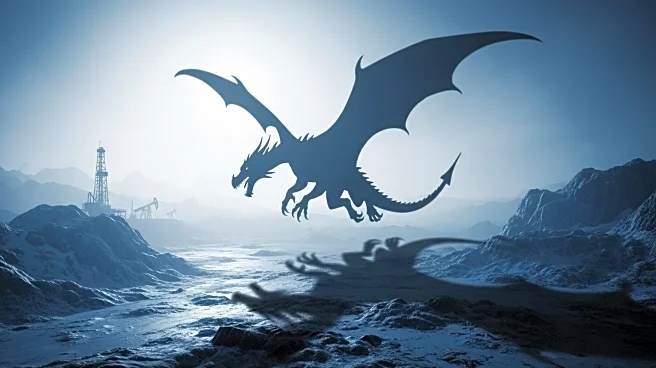What is the story about?
What's Happening?
Geoscientists from the University of Iceland and ÍSOR have assessed the oil exploration prospects in Iceland's Dreki area, also known as the Dragon area, as economically weak. The analysis, published on the University of Iceland Science Web, highlights the technical complexities and high costs associated with drilling due to the region's thick basalt cover and fractured geology. The scientists, Anett Blischke and Bryndís Brandsdóttir, noted the absence of observable oil seeps and insufficient seismic reflection data to suggest commercially viable deposits. Despite past interest dating back to the 1960s and recent calls from the Icelandic Chamber of Commerce for government incentives, the scientists conclude that the economic prospects remain poor, leading companies to focus on more promising exploration targets elsewhere in the North Atlantic.
Why It's Important?
The assessment of the Dragon area's oil prospects as economically weak has significant implications for Iceland's energy strategy and economic planning. The findings suggest that further investment in oil exploration in this region may not be justified, potentially redirecting focus and resources to other areas with better prospects. This could impact Iceland's ambitions to develop its oil industry and influence policy decisions regarding energy exploration incentives. The analysis also highlights the challenges faced by countries with complex geological conditions in attracting investment from oil companies, which may prefer regions with more straightforward extraction processes and higher potential returns.
















